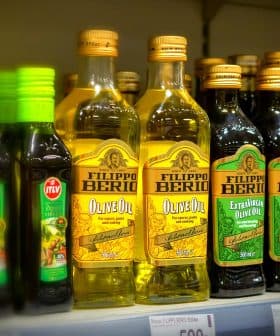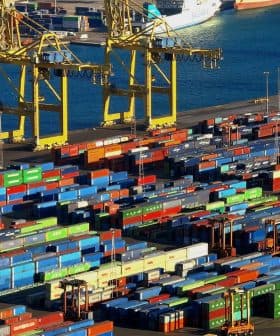Brexit, Poor Harvests Cause Spike in Olive Oil Prices
Poor harvests in Europe and the uncertainty following the Brexit vote have caused olive oil price spikes of up to 20 percent in the UK.
The Brexit referendum has caused olive oil prices in the UK to spike by up to 20 percent, mainly due to the effects of the ‘no’ vote on imports from Europe. Poor harvests in Italy and Greece have also contributed to the increase in olive oil prices, despite there being enough supply globally to meet demand.
The United Kingdom European Union membership referendum, or Brexit, has swayed not only the world of European politics and economics but the world of the liquid gold too, with British olive oil consumers now experiencing olive oil price spikes of up to 20 percent.
Imports into the UK from Europe are going to have to bear the effects of the ‘no’ vote.
“The price of olive oil has increased not due to the spike in the value of the Euro versus the Pound. Since the June 24th result stunned the world, we have seen the exchange rate increase the costs of buying from Europe at least 10 percent,” Jamie Johnson, CEO of FJP Investment told Olive Oil Times.
Trade magazine The Grocer reported that a 500ml bottle of private-label olive oil now costs £0.35 more in Sainsbury’s at £2.35 and £0.20 more in Tesco at £2.20. Sainsbury’s extra virgin olive oil of 500ml has also gone up by £0.10p to £2.35, and its private-label organic extra virgin olive oil of 500ml has increased by 20 percent in both Sainsbury’s and Tescos, setting the consumer back £3.00 to buy it.
Apart from the wider Brexit aftereffects, a main reason why olive oil prices have shot up is poor harvests in Italy and Greece.
In Italy, producers saw their output fall to 230,000 tons in 2015 compared with the 350,000 tons produced in 2014 due mostly to olive fly infestations. For the same rason, Greece, which produced an average of 300,000 tons over the past two years, will probably not surpass 200,000 tons this year.
While the production of two of the strongest players in the global olive oil market has fallen, the UK demand for olive oil has skyrocketed. From 6,200 in 1990, British olive oil demand soared to 65,000 tons in 2015, an ineffable increase of 763 percent.
Though it is true that there is enough olive oil in general to compensate the numbers, it seems there is particular interest from the British consumer for certain segments of the olive oil market, explained Johnson.
“For example, someone accustomed to buying the same brand of olive oil for the last ten years will likely take the hit on the price increase. And while price is important, the product is equally important.
“We can agree that all olive oil is not the same and with that it is important to differentiate the regions of the world that are producing olive oil. Naturally, we are all feeling the pinch and we all have a price point before we change due to pricing. Certainly I would resist changing olive oil at the consumer level until the pricing became too unreasonable.”
Attachment with the favorable brand aside, the biggest factor at play might be the exchange rate, and that is why British consumers are suddenly seeing the cost of goods higher than before Brexit, repeated Johnson:
“While there are no guarantees as to where the exchange rate is heading, for the time being all imports into the UK from Europe are going to have to bear the effects of a No Vote from Brexit.”









